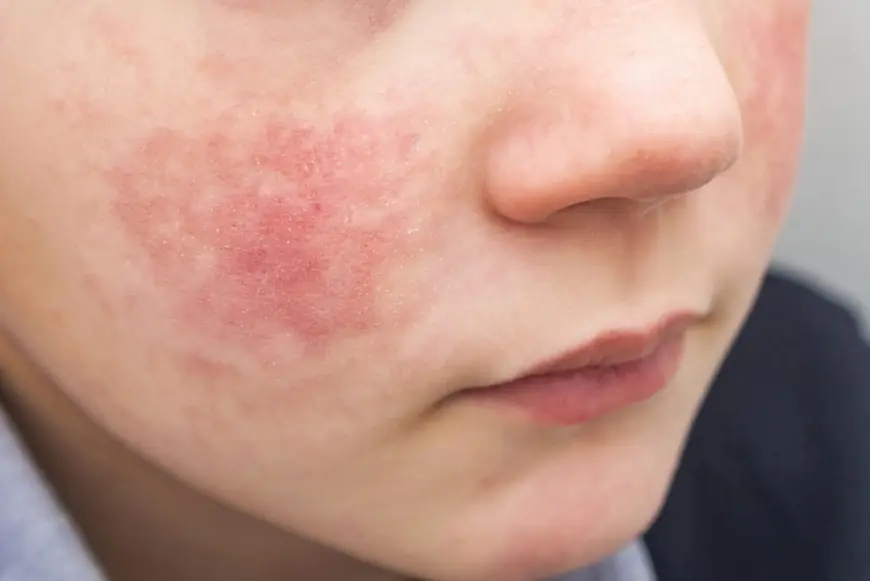Can a dermatologist treat scalp eczema in kids
Learn if a dermatologist can treat scalp eczema. Get relief from scalp itching and flaking with personalized treatment strategies and advice.

Scalp eczema treatment in Dubai also known as seborrheic dermatitis or atopic dermatitis when it affects the scalp, is a common condition in children. It presents as red, itchy, flaky, or crusty patches on the scalp. In infants, it often appears as "cradle cap," while older children may experience persistent dandruff or inflammation. The exact cause is multifactorial, involving genetics, immune response, and environmental triggers. It can be distressing for both the child and parents, especially when it leads to scratching, discomfort, or even sleep disturbances.
The Role of a Dermatologist in Diagnosis:
Can a dermatologist treat scalp Eczema (هل يمكن لطبيب الأمراض الجلدية علاج إكزيما فروة الرأس), Dermatologists are specifically trained to diagnose skin conditions, including those affecting the scalp. For children, an accurate diagnosis is essential to differentiate scalp eczema from other possible issues like psoriasis, fungal infections (such as tinea capitis), or allergic reactions. A dermatologist can examine the scalp closely, sometimes using a dermatoscope, and ask about the child’s history of allergies, asthma, or family history of eczema. In some cases, patch testing or a skin scraping may be recommended to rule out infections or contact dermatitis.
Safe and Gentle Treatments for Young Scalps:
Treating scalp eczema in children requires a gentle and age-appropriate approach. A dermatologist can recommend mild medicated shampoos specifically formulated for children to help reduce inflammation and flaking. These may include antifungal or low-dose corticosteroid shampoos used in limited quantities. In addition to topical treatments, soothing emollients or natural oils like coconut oil may be advised to moisturize the scalp and reduce itching. Importantly, all treatments are tailored to the child’s age, skin sensitivity, and severity of the condition to ensure safety and effectiveness.
Natural and Holistic Approaches:
For parents who prefer natural options, dermatologists can incorporate holistic methods alongside conventional care. Gentle washing routines using fragrance-free products, the use of natural oils, and avoiding common irritants like harsh detergents or wool hats are part of a dermatologist-approved care plan. Environmental triggers such as dry weather or indoor heating may also be addressed. By identifying and eliminating specific irritants, dermatologists help prevent flare-ups while keeping the child's scalp healthy and balanced.
Managing Chronic Eczema and Flare-Ups:
Scalp eczema can be a chronic condition that comes and goes. Dermatologists help families create a long-term management plan. This often includes a combination of medicated treatments during flare-ups and maintenance routines to keep symptoms at bay. Education is a key component—teaching parents how to recognize early signs of a flare, when to apply treatment, and how to prevent scratching can make a significant difference in controlling the condition. Consistency and follow-through are emphasized, especially in young children who may not always communicate discomfort.
Psychological and Emotional Support:
Living with a visible skin condition can affect a child’s confidence and social interactions, particularly in school-aged children. Dermatologists understand the emotional impact and work with parents to support their child's self-esteem. Addressing scalp eczema early and effectively can reduce embarrassment, teasing, or withdrawal. Dermatologists may also suggest behavioral strategies to reduce scratching or refer families to additional support if needed, such as pediatric counselors or support groups for children with chronic skin conditions.
Collaborating with Pediatricians and Parents:
Dermatologists work closely with pediatricians and caregivers to provide a comprehensive treatment plan. Communication is key—parents are encouraged to report any changes in symptoms, reactions to products, or concerns about medications. Dermatologists take the time to explain the purpose of each treatment, potential side effects, and proper application techniques. This partnership ensures that the child’s condition is monitored and managed effectively while providing peace of mind to parents.
Long-Term Outlook for Children with Scalp Eczema:
The good news is that many children outgrow scalp eczema or experience significant improvement as they get older. With professional guidance, proper treatment, and consistent care, most cases can be well managed. Dermatologists help navigate this journey, offering reassurance and solutions tailored to the child’s needs. Early intervention, education, and regular follow-up appointments contribute to reducing discomfort and improving quality of life for the child and family alike.
Conclusion:
scalp Eczema (إكزيما) in children can be a challenging condition, but with the expertise of a dermatologist, it is highly manageable. Dermatologists provide accurate diagnosis, safe and effective treatments, and tailored care plans that consider a child’s delicate skin and unique needs. By combining medical treatments with natural approaches and guiding parents every step of the way, dermatologists ensure not just relief from symptoms, but also long-term scalp health. With consistent care, early intervention, and emotional support, children with scalp eczema can enjoy a healthy, comfortable childhood free from the discomfort and frustration of flare-ups.
What's Your Reaction?
 Like
0
Like
0
 Dislike
0
Dislike
0
 Love
0
Love
0
 Funny
0
Funny
0
 Angry
0
Angry
0
 Sad
0
Sad
0
 Wow
0
Wow
0
















































